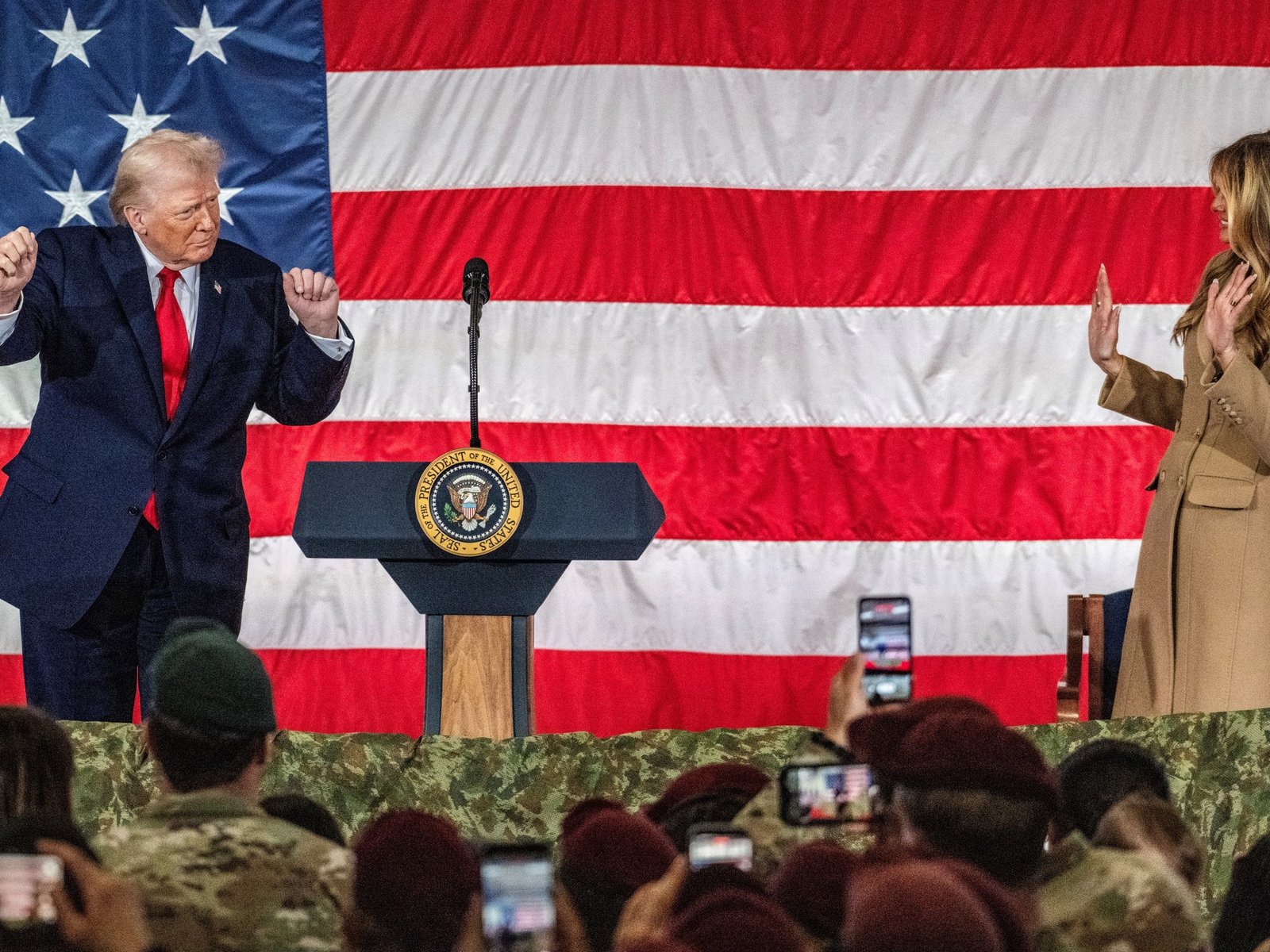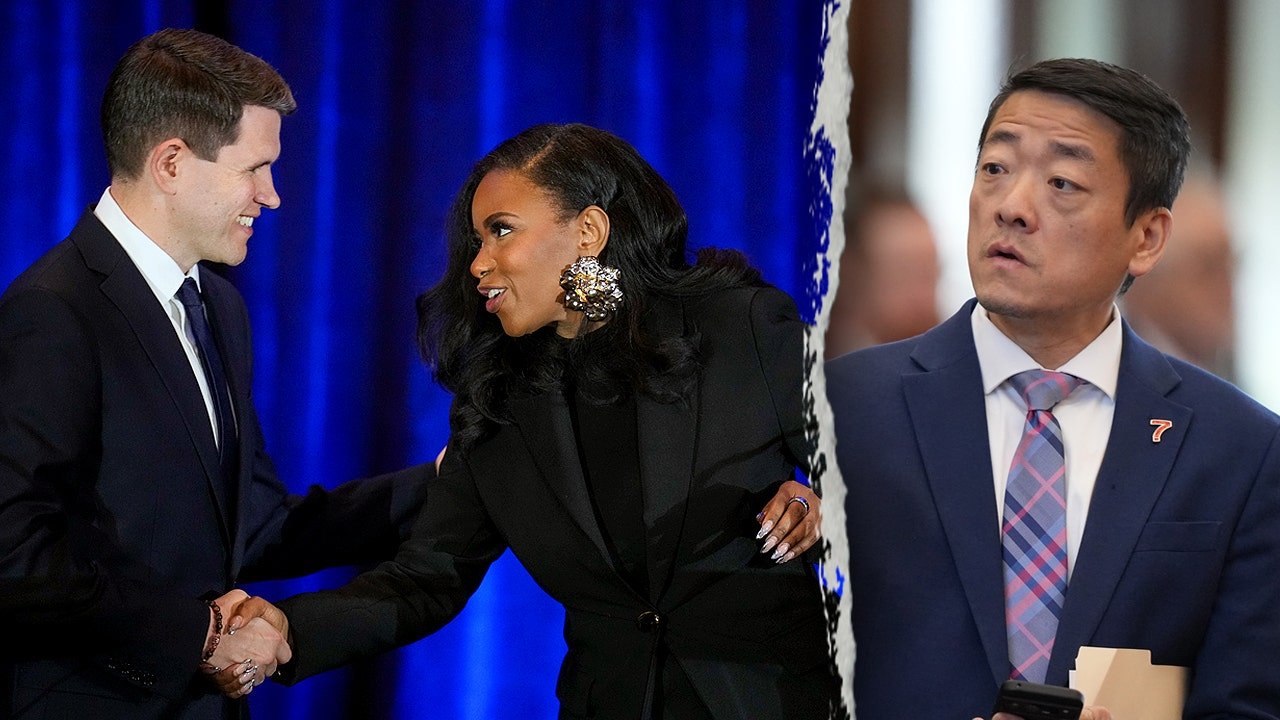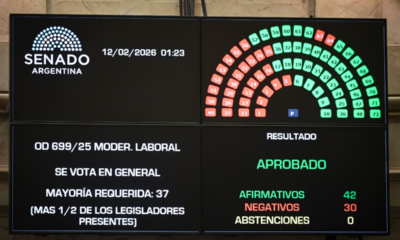INTERNACIONAL
Cómo será el proceso de investigación de las Abuelas de Plaza de Mayo en Uruguay

La organización argentina Abuelas de Plaza de Mayo desembarcó en Uruguay para promover la búsqueda de nietos desaparecidos por la dictadura de este país, que sucedió entre 1973 y 1985. Con la presencia del presidente Yamandú Orsi, esa asociación y la Comisión por el Derecho a la Identidad presentaron el lanzamiento de Nodo Uruguay.
La Red por el Derecho a la Identidad fue creada por la asociación Abuelas de Plaza de Mayo, la Comisión Nacional por el Derecho a la Identidad de Argentina y la sociedad civil, con el objetivo de promover la búsqueda de nietos y el derecho a la identidad en el territorio argentino. La red funciona también como una contención y ofrece información a personas que tienen dudas sobre su identidad.
Con el paso de los años, la red se ha ido expandiendo y se fueron creando nodos de búsqueda en países donde no existían filiales de Abuelas de Plaza de Mayo. La presencia se extendió en países como Brasil, Chile, Estados Unidos, Canadá, varios países de Europa y, ahora, Uruguay.

Según la información difundida por la Presidencia uruguaya, lo que hará el Nodo Uruguay es ofrecer un ámbito de coordinación nacional para la búsqueda y la orientación de personas nacidas entre 1975 y 1983 que tengan dudas sobre su identidad o quieran aportar información sobre un posible caso.
Macarena Gelman es una de las nietas restituidas y referente de la organización en Uruguay. Es la hija de María Claudia García de Gelman, argentina desaparecida en Uruguay durante el plan Cóndor.
Entrevistada la semana pasada en Desayunos Informales de Canal 12, relató que el proceso comienza con una entrevista a distancia entre el colectivo de Abuelas y la persona interesada, siempre que cumpla algunos requisitos. Luego se lleva adelante una investigación y, si no se logra realizar una conexión, se pasa a un “análisis genético”. El Observador consignó que lo que se hace en este análisis es una comparación con el Banco Nacional de Datos Genéticos en Argentina, que tiene muestras de todos los grupos familiares que hasta ahora han denunciado que mujeres estaban embarazadas cuando fueron secuestradas.

Abuelas de Plaza de Mayo hizo su presentación oficial en Uruguay a inicios de noviembre.
“Estamos muy contentos de poder acompañar la formación de este nodo de la Red por la Identidad acá en Uruguay. Las Abuelas llevan 48 años haciendo esta búsqueda y transformándola en una búsqueda internacional desde sus lugares, saliendo de sus casas hacia la Plaza de Mayo”, dijo en su oratoria Claudia Poblete, nieta restituida y miembro de la Directiva de Abuelas de Plaza de Mayo.
La activista destacó que la asociación argentina está unida a Uruguay desde sus orígenes. “Hay un vínculo entre los dos países que es muy fuerte y que trasciende la historia y la geografía. Tiene mucho que ver con las luchas y con todas esas muertes que compartimos”, señaló, en referencia a los desaparecidos que todavía se están buscando.
Gelman destacó que en el país está “consagrado” el derecho a la identidad. “La totalidad hasta ahora de los hijos de uruguayos han sido encontrados en Argentina, en Chile o en algún otro país. Como hijas de argentinos que fue encontrada acá tengo razones para pensar que no necesariamente soy la única hija de argentinos que puede estar acá”, dijo.

“El Nodo Uruguay va a tener una forma de comunicarse directamente, de poder, a través de nuestro, llegar a las instancias donde es posible esta identificación, tanto a través de Abuelas como a través de la Comisión Nacional por el Derecho a la Identidad, concretamente a través del Banco Nacional de Datos Genéticos. Es el único banco que cuenta con las muestras que hacen posible la identificación, ya que allí se encuentran el registro de material genético de las familias que buscan y con las cuales se pueden entrecruzar”, explicó Gelman en la conferencia de prensa.
A la salida del encuentro, el presidente de Uruguay llamó a “avanzar” en la búsqueda de desaparecidos de la última dictadura del país. Señaló que todos los meses hay noticias de que se puede avanzar por un lado o el otro, pero dijo que hasta ahora el país no ha tenido “mayor éxito”.
“Se sigue buscando. Yo creo que capaz que hay que avanzar y poner más recursos para la búsqueda. Por ejemplo, como lo hemos hecho en Canelones en el Batallón 14”, dijo, en referencia a uno de los lugares en los que se buscan restos.
2025,20251103,camilo dos santos ayala presidencia de uruguay,montevideo,presidencia,uruguay
INTERNACIONAL
Donald Trump hace campaña con los soldados que participaron de la captura de Nicolás Maduro

El presidente Donald Trump visitó y elogió públicamente a los miembros de las fuerzas especiales estadounidenses que capturaron al dictador venezolano Nicolás Maduro en su bunker en Caracas, y dijo que la audaz ofensiva del mes pasado significa que «todo el mundo vio lo que puede hacer el poder militar» de EE.UU. y que así se aseguraron de “ser temidos” por posibles enemigos en todo el mundo.
En un discurso ante soldados y sus familias en Fort Bragg, una de las bases militares más grandes del mundo, en Carolina del Norte, Trump declaró: «Su comandante en jefe les apoya totalmente.» Luego, inspirándose en uno de sus lemas de campaña, los arengó: «Cuando sea necesario, van a luchar, luchar, luchar. ¡Van a ganar, ganar, ganar!»
Trump dio su mensaje justo el día en que se conoció que el portaviones estadounidense USSFord, el más grande del mundo, que desde el Caribe ayudó en la operación en Caracas, será relocalizado en Oriente Medio, en medio de las tensiones con Irán.
«Estados Unidos vuelve a ser respetado. Y, quizás lo más importante, somos temidos por los enemigos de todo el mundo», dijo el presidente a sus soldados. «No me gusta decir miedo», agregó. «Pero, a veces, hay que tener miedo porque eso es lo único que realmente solucionará la situación.»
El presidente y la primera dama Melania Trump también se reunieron en privado con familias de militares de las fuerzas Delta, una unidad de operaciones especiales de élite especializada en misiones antiterroristas, rescate de rehenes y operativos encubiertos, que fueron las que encabezaron la ofensiva para la captura de Maduro en Caracas el 3 de enero.
Ante las tropas, en un escenario que parecía más bien un acto de campaña, Trump festejó: «Lo que hicimos recientemente en Venezuela, nadie había visto algo así».
El presidente aseguró que el asalto, que incluyó una infiltración de varios helicópteros de ataque y transporte militar en Caracas, «terminó, literalmente, en un minuto». Y que «todos huyeron”. “Tenemos el Ejército más fuerte del mundo, por lejos», celebró Trump.
Maduro y la ex primera dama venezolana, Cilia Flores, fueron transportados ese mismo día a una prisión federal de Nueva York, donde aguardan juicio bajo acusaciones de narcoterrorismo y conspiración.
Trump relató algunos detalles del asalto a Fuerte Tiuna, en Caracas, donde se refugiaba el dictador: «Era una gran base, una de las más grandes de Sudamérica, donde (Maduro) vivía, y en cuestión de minutos lo sacaron de allí en helicóptero. Tuvieron que atravesar puertas de acero. El acero era como papel maché».
El jefe de la Casa Blanca hizo referencia también al sistema armamentístico que se conoció como «descombobulador» y que asegura es un desarrollo secreto que se empleó en la operación en Venezuela. «Hablan del descombobulador porque (las tropas venezolanas) nunca lograron disparar”, dijo.
Y se ufanó del poder de esa tecnología: “El equipamiento (de defensa) ruso no funcionó. El equipamiento chino no funcionó. Todos intentan averiguar por qué no funcionó. Algún día lo descubrirán, pero no funcionó. Es agradable poder volar sin que te disparen», dijo.
El propio Trump había mencionado esta supuesta arma o sistema secreto, que no está registrada formalmente entre las que posee EE.UU. Más que un arma identificable, el “descombobulador” parece ser más bien un término informal asociado a capacidades de guerra electrónica o ciberataque.
«Esa noche, todo el mundo vio de lo que es capaz el poder militar completo del ejército estadounidense», dijo el presidente. «Fue tan preciso, tan increíble.»
Trump también prometió: «Mientras yo sea presidente, seremos la fuerza de combate mejor dirigida, mejor entrenada, mejor equipada, más disciplinada y más élite que el mundo haya visto jamás» y señaló sobre posibles adversarios estadounidenses: «Todo el mundo lo sabe.»
«Saben exactamente a qué se enfrentarían. Esperemos que nunca tengamos que ponerlos a prueba y, gracias a nuestra fortaleza y a lo que hacemos, probablemente no tendremos que ser puestos a prueba», advirtió Trump.
El presidente recordó a la su vez que «tres pilotos de helicóptero estadounidenses «resultaron gravemente heridos en las piernas al aterrizar» y que hubo francotiradores apostados en estos helicópteros que neutralizaron las ametralladoras que hirieron a estos pilotos.
«Esos pilotos fueron increíbles y realmente valientes”, remarcó.
El ataque a Venezuela dejó unos cien muertos, entre ellos 32 agentes cubanos que formaban parte del anillo de seguridad de Maduro, sin que se registraran bajas estadounidenses.
INTERNACIONAL
Video: la desgarradora despedida a uno de los hijos asesinados por el funcionario brasileño en Itumbiara

Itumbiara vivió una jornada marcada por el dolor y la incredulidad. Este jueves, familiares, amigos y vecinos se reunieron para despedir a Miguel Araújo Machado, el niño de 12 años que fue asesinado por su padre, el funcionario Thales Machado.
El velatorio de Miguel se celebró en casa de su abuelo, el intendente Dione Araújo, y fue enterrado en el Cementerio Avenida da Saudade.
Leé también: El caso del funcionario brasileño que mató a sus hijos y se suicidó: una carta y una presunta infidelidad
Una tragedia que golpeó a toda la comunidad
Las víctimas eran hijos de Thales Naves Alves Machado, de 40 años, el secretario municipal. El martes, Thales les disparó a sus dos hijos, de 12 y 8 años, y se quitó la vida.
El adolescente fue enterrado en el Cementerio Avenida da Saudade. (Video: Facebook Jovem Pan News.)
El niño más pequeño, Benício Araújo Machado, fue trasladado de urgencia al Hospital Estadual de Itumbiara São Marcos, pero los médicos no lograron salvarlo. La noticia del fallecimiento de ambos hermanos dejó a la ciudad sumida en el luto.
El autor del crimen era yerno del intendente Dione Araújo, por lo que las víctimas eran nietos del jefe comunal. La tragedia impactó de lleno en el círculo político local y en toda la sociedad.
Ante la magnitud del hecho, la municipalidad decretó tres días de luto oficial. El gobernador de Goiás, Ronaldo Caiado, expresó su pesar y envió un mensaje de solidaridad a la familia.
Leé también: Revelaron el video de la presunta infidelidad de la mujer del funcionario brasileño que les disparó a sus hijos y se mató
El caso está siendo investigado por el Grupo de Homicidios de Itumbiara, que intenta reconstruir los motivos detrás del crimen.
La terrible carta que Thales Machado publicó después de dispararles a sus hijos
El miércoles por la noche, tras dispararles a sus hijos de 12 y 8 años, Thales Machado (40) publicó una carta donde pidió perdón, contó que atravesaba problemas en su matrimonio y mencionó haber descubierto una supuesta infidelidad de su esposa, quien se habría ido de Itumbiara para San Pablo para estar con otra persona.
El posteo de Thales Machado en sus redes tras el crimen. (Foto: gentileza Revista Forum).
Este es el contenido de la carta:
Es difícil empezar a escribir, pero todo tiene un final y, hoy, lo nuestro ha llegado a su fin, por desgracia.
A lo largo de estos 15 años de vida en mi familia, siempre he tratado de mantener la mejor armonía y respeto posible, pero hoy llegó un límite de lo improbable: mi esposa se va de Itumbiara a San Pablo para conocer a alguien.
Son días difíciles… ella había estado diferente por unos días y yo tenía sospechas, pero nunca imaginé que haría esto.
La semana pasada, seguí hablando como siempre. Si lo estamos haciendo bien, mantengamos el respeto y hablemos antes. Pero ella no escuchó y prefirió esto. Es triste.
Nos vamos, yo y mis hijos, que ahora son ángeles. Por desgracia, ellos se van conmigo.
Les aseguro que nunca lo pensé. Todos saben lo intenso y genuino que soy y no podría vivir más tiempo con los recuerdos.
A mi familia, padre y madre, gracias por todo, siempre estaré agradecido. Dione, mi eterno respeto y admiración, perdoname por lo que hice. Sé que es imperdonable, pero qué podía hacer en este infeliz día de mi 40 cumpleaños.
Siempre estaré agradecido con mis amigos y hermanos por todo. Yo estaré ahí, en algún lugar, no sé dónde.
Sarah, desafortunadamente, esto no era lo que quería… solo quería la verdad y el respeto que, lamentablemente, no me diste, y te fuiste con una persona descalificada, un pícaro de nuestra ciudad.
Pido perdón a Dios, a Jesucristo, a Nuestra Señora de Aparecida y Santa Rita de Casia, rogad por nosotros.
Si hay un poquito de compasión, por favor, perdónenme. Lo hice con el corazón roto y no sé qué más hacer.
También me gustaría agradecerle a mi cuñada Laura, una persona honesta y con un gran corazón. Besos. Cuida a los pequeños y a todos… eres capaz y tienes una fe que vi en muy pocas personas. Que Dios esté contigo y conmigo. Por favor, perdóname, porque esto era lo último que esperaba que ocurriera en mi vida y fue lo que sucedió hoy.
Que Dios esté con vosotros.
El contenido fue eliminado de las redes sociales tras la difusión del incidente.
Brasil
INTERNACIONAL
Texas Dem Senate primary fractures over race rhetoric as ‘mediocre’ jab, ‘oppressor’ remarks ignite backlash

NEWYou can now listen to Fox News articles!
Heated racial rhetoric in Texas is flaring this primary season, as Democratic contenders lean into identity-focused messaging that Republicans say is divisive and a clinic in «wokeness at its worst.»
Texas Democrats are heading into primary season with an intraparty fight that is increasingly spilling into race and identity. Rep. Jasmine Crockett, who is running for the Senate, has suggested racism would be to blame if she loses, while former Rep. Colin Allred accused Crockett rival and Austin state Rep. James Talarico of calling him «a mediocre Black man» in a political spat affecting races in the Senate and House.
«These disgusting comments are wokeness at its worst and the silence is deafening from Democrats,» RNC spokesman Zach Kraft said of the recent rhetoric out of Texas in recent months.
SPEAKER JOHNSON LAUGHS OFF JASMINE CROCKETT SENATE BID: ‘ABSOLUTELY DELIGHTED’ SHE IS RUNNING
Texas State Rep. James Talarico, D-Travis, and Rep. Jasmine Crockett, D-Texas, shake hands. (Bob Daemmrich/Getty Images)
Crockett, who is running for the Senate to replace Republican Sen. John Cornyn, offered a fiery response.
«You think I didn’t know I was a black woman when I woke up and decided that I was going to run for the U.S. Senate? You think I didn’t factor in and make sure we had enough room to account for that?»
Racially focused flare-ups have broken out in recent weeks as Democrats eye high-profile races and try to energize blue voters in the red state.
JASMINE CROCKETT CLAIMS ALLIES HAVE EXPRESSED CONCERN FOR HER SAFETY WHILE RUNNING FOR SENATE
«Look no further than the Senate primary to see how the woke mind virus has spread like wildfire among the ranks of Texas Democrats. James Talarico spent last week apologizing for his ‘white privilege,’ and Jasmine Crockett is taking a page out of Kamala Harris’ playbook by preemptively blaming racism and sexism for why she will lose,» Kraft told Fox News Digital.
Just this month, Texas Democratic state Rep. Gene Wu, the minority leader of the Texas House, drew backlash over a resurfaced clip from a 2024 interview in which he described white Americans as «oppressors» of «non-whites.»
«That there is a sense of, ‘America really just belongs to White people,’ that this was that a lot of people believe that God gave America to White people to rule, and that any time that immigrants, minorities make progress in this country, that that is seen as a slight against them,» Wu, of Houston, said in 2024 on «Define American» podcast with Antonio Vargas.
Wu, who was born in Guangzhou, China, added that Latinos, Asians and Black Americans — «everybody» — are kept divided because powerful forces have spent time and money ensuring they do not unite. Instead, he argued, those groups are pushed to see each other as rivals even though they share the same oppressor, and he claimed the oppression «comes from one place.»
«I always tell people the day the Latino, African-American, Asian and other communities realize that they are — that they share the same oppressor is the day we start winning, because we are the majority in this country now,» he continued. «We have the ability to take over this country and to do what is needed for everyone and to make things fair.»
The clip set off swift condemnation from Texans as it circulated online, including Republican Sen. Ted Cruz saying, «The Democrat party is built on bigotry.»
GOP SEIZES ON DEM CIVIL WAR AS PROGRESSIVES JUMP INTO KEY 2026 SENATE RACES: ‘THEY’RE IN SHAMBLES’

Texas House Democratic Caucus Chair Gene Wu attends a news conference at the conclusion of a House meeting on August 18, 2025, in Austin, Texas. (Brandon Bell/Getty Images)
Allred recently told former DNC chairman Jaime Harrison of South Carolina on his podcast that Talarico made another disparaging comment about him in private while the former Tennessee Titans linebacker was still a candidate in the Senate race.
Allred has since dropped out and is seeking a newly drawn 33rd Congressional District near Dallas. The current 33rd District in the Metroplex is represented by Democratic Rep. Marc Veasey.
«He’s said some things to me that I don’t like. He said to me before he got into the race that he thought that he would be a better candidate because he doesn’t have a family, and that… he could spend more time campaigning,» Allred said.
«As you know, Jaime, like I didn’t know my dad, so I’m like all about being a father to my two boys, right? I was like, no, no, no, I run because of my family.»
A TikTok influencer named Morgan Thompson originally claimed Allred made the «mediocre Black man» comments, recounting the conversation from a Talarico rally in Plano.
«James Talarico told me that he signed up to run against a mediocre Black man, not a formidable and intelligent Black woman,» Thompson said, adding she now supports Crockett.
EX-SNL STAR BOWEN YANG, PODCAST CO-HOST WALK BACK COMMENTS CRITICIZING JASMINE CROCKETT’S SENATE CAMPAIGN

Allred claimed that Talarico said he’d «be a better candidate because he doesn’t have a family.» (MIGUEL J. RODRIGUEZ CARRILLO/AFP; Bob Daemmrich/The Texas Tribune/Bloomberg)
Talarico released a statement soon after calling the situation a «mischaracterization of a private conversation» and said he was talking about Allred’s «method of campaigning,» not his life.
«I would never attack him on the basis of race,» Talarico said. «As a Black man in America, Congressman Allred has had to work twice as hard to get where he is. I understand how my critique of the Congressman’s campaign could be interpreted given this country’s painful legacy of racism, and I care deeply about the impact my words have on others,» Talarico said, according to the Texas Tribune.
Talarico recently announced that he raised $7.4 million in the first six weeks of the quarter in his contest against Crockett.
CLICK HERE TO DOWNLOAD THE FOX NEWS APP
He did not respond to a request for comment. Crockett’s campaign also did not respond to an inquiry left in its campaign inbox, which is separate from her official congressional office due to the Hatch Act.
Fox News Digital’s Marc Tamasco contributed to this report.
primary results,woke,democrats elections,ted cruz,democrats senate

 POLITICA2 días ago
POLITICA2 días agoA quién afecta la Reforma laboral: estos son los puntos clave del proyecto de Milei

 POLITICA2 días ago
POLITICA2 días agoReforma laboral: la modificación sobre accidentes o enfermedades ajenas al trabajo

 ECONOMIA2 días ago
ECONOMIA2 días agoCayeron 20% las ventas de automóviles en China y el régimen impone medidas para regular el mercado



























